Electronics and Computer Engineering Technology
The B.S. in Electronics and Computer Engineering Technology program equips students with the skills essential to today’s-and tomorrow’s-innovative technologies. The curriculum covers a wide range of areas, including electrical and electronic circuits, analog and digital electronics, telecommunications, control systems, power electronics, power and energy systems, instrumentation and data acquisition, industrial controls, and robotics applications. With a B.S. in ECET, graduates are prepared to make a meaningful impact by improving the technologies that enhance everyday life.
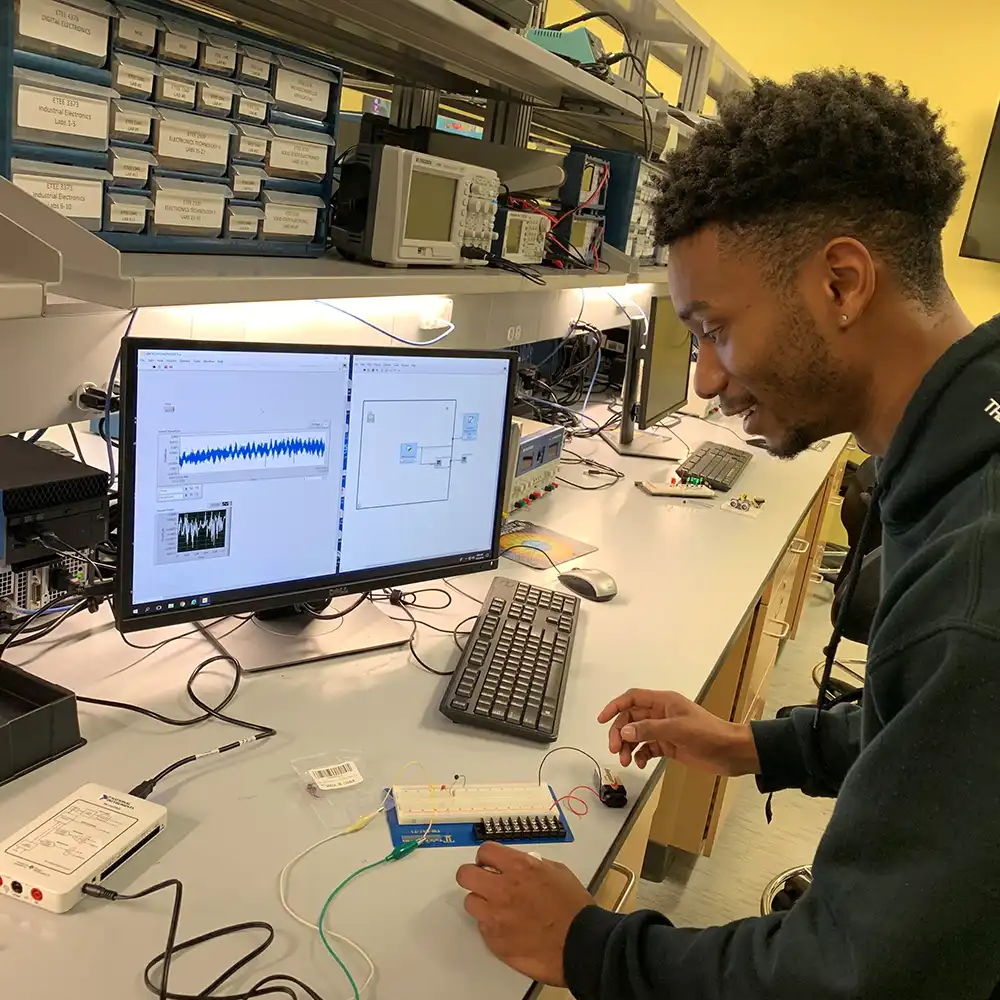
- Bachelor of Science
- Huntsville
- Face to Face
4 Years
Innovative Tech Skills for the Future
The Bachelor of Science in Electronics and Computer Engineering Technology at SHSU prepares students to design, develop, and maintain electronic and computer systems. The program combines theory with hands-on experience in areas like circuit design, programming, automation, and networking. Graduates gain practical skills to solve real-world problems and adapt to rapidly evolving technologies in industries such as manufacturing, telecommunications, and robotics. This degree readies students for technical careers that drive innovation and support critical electronic infrastructure.
ABET-Accredited and Industry-Driven
The Electronics and Computer Engineering Technology program is accredited by the Engineering Technology Accreditation Commission (ETAC) of ABET. The curriculum blends electronics, computer systems, and automation engineering providing a solid foundation in circuit design, robotics, and control systems. Students gain the technical and analytical expertise to excel in manufacturing, telecommunications, robotics, energy, and embedded systems.
Hands-On Experience for Real-World Impact
Students gain practical experience through labs, simulations, and a required Senior Design Project, where they design and implement innovative solutions to real engineering challenges. Internship opportunities and mentorship programs enhance career readiness, while the department’s state-of-the-art facilities provide access to tools for design, prototyping, automation, and renewable energy systems.
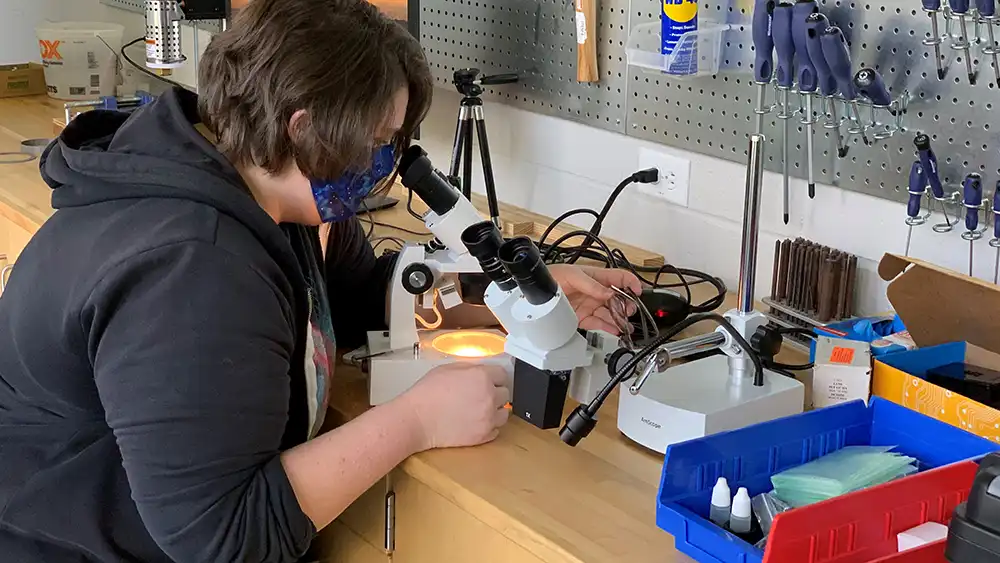
Future-Focused Engineering
SHSU’s B.S. in Electronics and Computer Engineering Technology combines hands-on learning with a broad, industry-relevant curriculum. Students develop practical skills in electronics, programming, and automation while gaining knowledge applicable to diverse fields like telecommunications and robotics. This program prepares graduates to innovate and excel in a rapidly evolving technology landscape.
-
Hands-On Technical Training
SHSU’s program emphasizes practical experience through labs and projects, allowing students to work directly with electronic systems, programming, and automation tools. This hands-on approach builds strong problem-solving skills and prepares graduates to confidently handle real-world engineering challenges in diverse industries.
-
Broad Industry Applications
The degree covers electronics, computer engineering, and networking, opening career opportunities in manufacturing, telecommunications, robotics, and more. Graduates are equipped to design and maintain critical systems that power modern technology, making them valuable assets across many sectors.
-
Future-Ready Curriculum
The curriculum stays current with emerging technologies and industry trends, preparing students for evolving challenges in electronic and computer engineering. This forward-thinking approach ensures graduates are adaptable, innovative, and ready to contribute to cutting-edge solutions in a rapidly changing tech landscape.
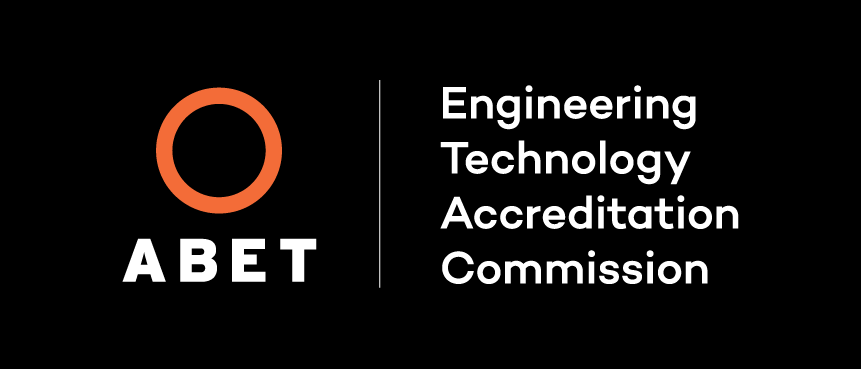
ABET Accreditation
The Bachelor of Science in Electronics and Computer Engineering Technology degree program within the Department of Engineering Technology at Sam Houston State University is accredited by the Engineering Technology Accreditation Commission of ABET, https://www.abet.org, under the commission’s General Criteria and Program Criteria for both Electrical/Electronics Engineering Technology and Computer Engineering Technology.
The Bachelor of Science in Electronics and Computer Engineering Technology (ECET) program at Sam Houston State University will allow the students to explore everything from circuit boards to networks and systems and equip students to take the lead for current and future problems of engineering technology to better serve the needs of the people and industry. A successful completion of the B.S. in ECET degree will prepare you for nearly any field that hires electrical, electronic, and computer engineers including automation, industrial controls, instrumentation, robotics, conventional and renewable energy, power utilities, biomedical, aerospace, automotive, agriculture, oil and gas, heavy and industrial equipment, consumer products, telecommunications, wireless communications, and more. This program is accredited by the Engineering Technology Accreditation Commission (ETAC) of ABET.
The Electronics and Computer Engineering Technology (ECET) program fosters professionals through quality and application oriented breadth of education and experience. The program contributes to the advancement of ECET in support of hardware, software, and systems engineering.
Click here to see the plan of study flow chart for the Electronics and Computer Engineering Technology Program.
- Graduates will apply principles of science, technology, engineering, and mathematics to solve real-world problems.
- Graduates will apply their theoretical knowledge to design, build, test, analyze, and improve broadly defined engineering problems appropriate to electronics and computer engineering technology (ECET) disciplines.
- Graduates will effectively use communication and project management skills in oral, written, visual, and graphic modes within interpersonal and team environments in the ECET disciplines.
- Graduates will grow professionally practicing life-long learning through self-study, continuing education, participation in technical societies, and/or pursuit of professional certification.
- Graduates will evaluate the social and ethical implications of their work and will comply with all codes and regulations governing their work.
ECET graduates will demonstrate an ability to:
- Apply knowledge, techniques, skills and modern tools of mathematics, science, engineering, and technology to solve broadly defined engineering problems appropriate to the ECET discipline.
- Design systems, components, or processes meeting specified needs for broadly defined engineering problems appropriate to the ECET discipline.
- Apply written, oral, and graphical communication in broadly defined technical and non-technical environments; and an ability to identify and use appropriate technical literature.
- Conduct standard tests, measurements, and experiments and to analyze and interpret the results to improve processes.
- Function effectively as a member as well as a leader on technical teams.
The PEOs and SLOs were revised and approved on Sept 22, 2023 at the Fall 2023 IAB Meeting. SLOs were briefly revised and approved on January 19, 2024 at the Engineering Technology Department meeting. Also, approved at the Spring 2024 IAB Meeting on March 1, 2024.
2025
- Spring-81
- Summer-31
- Fall-98
2024
- Spring-72
- Summer-29
- Fall-87
2023
- Spring- 76
- Summer- 24
- Fall- 81
2022
- Spring-68
- Summer-31
- Fall-79
2021
- Spring-62
- Summer-22
- Fall-65
2020
- Spring-83
- Summer-37
- Fall-84
2025
- Spring-TBA
- Summer-TBA
- Fall-TBA
2024
- Spring-5
- Summer-2
- Fall-6
2023
- Spring-8
- Summer-2
- Fall-6
2022
- Spring-3
- Summer-6
- Fall-4
2021
- Spring-7
- Summer-5
- Fall-6
2020
- Spring-12
- Summer-3
- Fall-10
- Alternative Energy Solutions
- Analog/Digital Electronics
- Automation and Control
- Circuits and Systems
- Computer Programming
- Electrical and Power Machinery
- Embedded Control Systems
- Hardware Design
- Industrial Robotics
- Instrumentation and Data Acquisitions
- Networking
- GE
- John Deere
- Caterpillar
- Continental Tire
- Honeywell
- Toyota
- Honda
- Lockheed-Martin
- Ford
- GM
- Johnson and Johnson
- Amazon
- Exxon
- Boeing
- Nissan
- Quanta Services
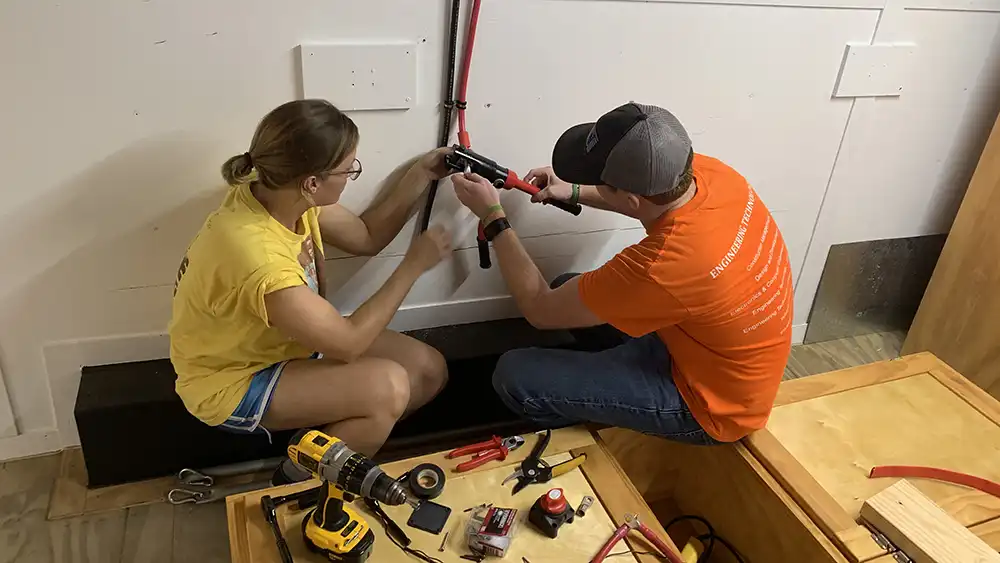
Find Your Future Career
Graduates pursue careers as electronics engineers, automation specialists, network technicians, robotics engineers, systems analysts, and more.
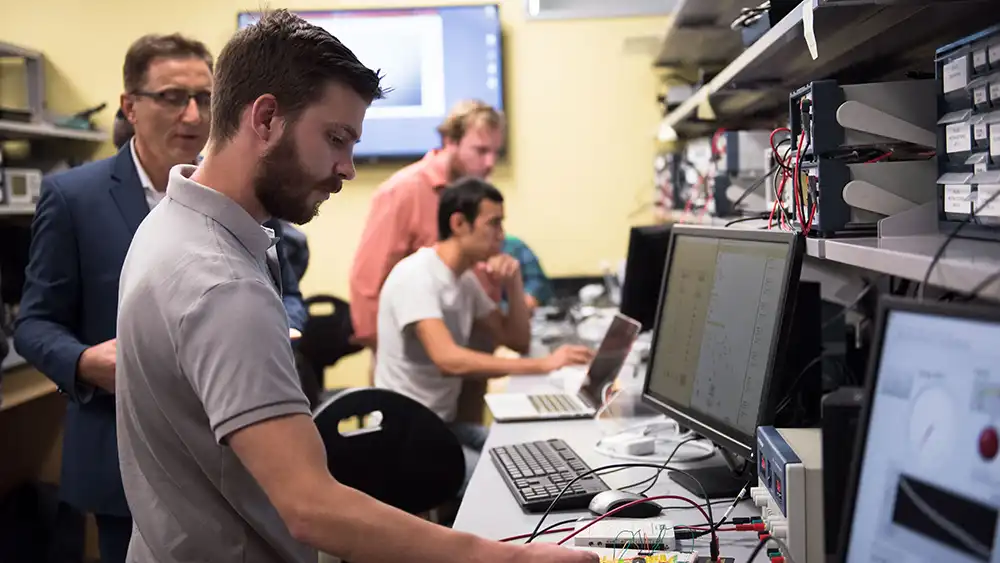
Expert Engineering Faculty
SHSU’s Electronics and Computer Engineering Technology faculty are experienced professionals dedicated to hands-on learning and innovation.
Become a Bearkat
Ready to see what a degree can do for you or to start your application to SHSU? Our Admissions team is here to help.